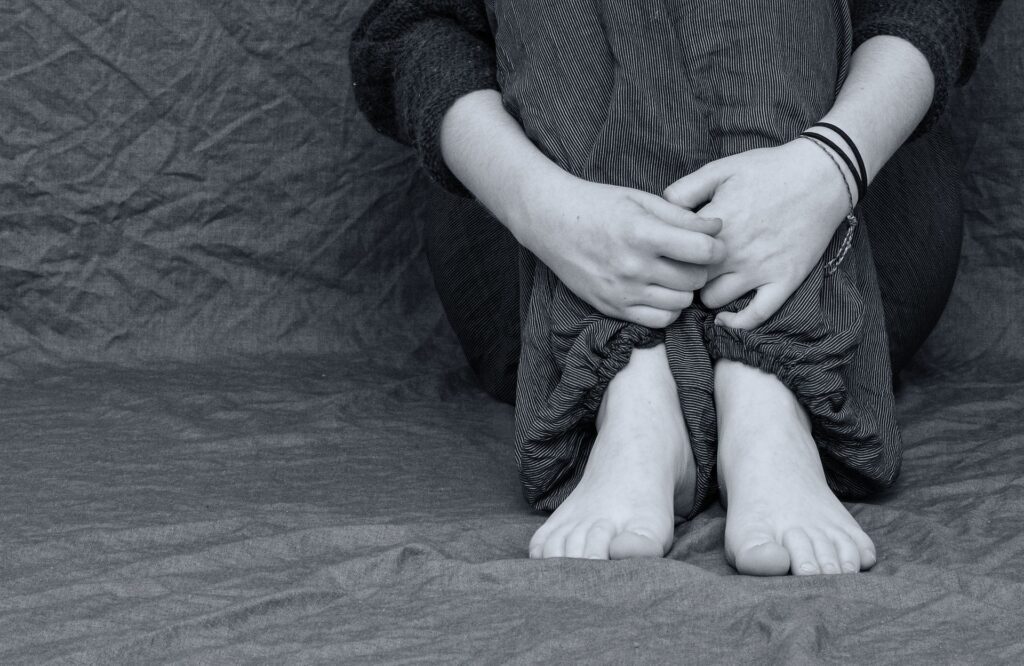WHAT IS RESTLESS LEGS SYNDROME?
It is a sensory-motor disorder mainly in the lower limbs. This means that there is a disorder that involves abnormalities of both sensation and movement in the legs. The main symptom is an imperative to move the legs, due to restlessness or "tingling" or "burning" or "like electricity" or numbness or nervousness or pulling or a general strange feeling, especially in the evening and night hours when the patient is resting or wants to to sleep. Partial or temporary relief is observed if the patient gets up and moves the legs. Due to the fact that these symptoms appear at rest and at rest, the patient usually avoids prolonged immobility of the legs such as theater, cinema, long trips by car or plane. But what cannot be avoided is lying down to sleep, where the symptoms become intense and can become very disturbing for the patient.
WHICH DOCTORS DEAL WITH THIS SYNDROME?
Due to the fact that it is a movement and sleep disorder, neurologists but also psychiatrists or pulmonologists deal with it in the context of e.g. of a sleep lab.
HOW COMMON IS THIS SYNDROME AND WHAT ARE THE "RISK FACTORS" FOR SOMEONE TO DEVELOP IT?
While for many centuries it was an unknown disorder, since its existence (described since 1945), epidemiological studies show that a large percentage of the general population has this syndrome. Two studies in 2005 in the USA and in six European countries by and his collaborators showed that approximately 5.5% of men and 9-11% of women, i.e. 7.2 to 8.5% of the general population suffers
from this disorder. This percentage is very high. In practice, this means that in Greece approximately 850,000 people have restless legs to varying degrees. From these percentages, but also from many researches that confirm it, it seems that the female gender shows this disorder more often. It's not entirely clear why this happens, but it probably has something to do with the body's iron stores and pregnancy. Women, due to periods, diet and pregnancy, have lower levels of iron in the body and this increases the possibility of the syndrome. A 2004 study showed that women who had no pregnancies had similar rates to men, while the more pregnancies a woman had, the greater her risk for the syndrome.
Other predisposing factors are age (increases steadily in frequency after age 60), white race (rare in Asians), anemia, renal failure (and uremia), and perhaps rheumatic diseases, diabetes mellitus, neuropathies, multiple sclerosis, heart failure, hypo- or hyperthyroidism, gastrectomy and vitamin deficiency. Also drugs such as neuroleptics, metoclopramide, antihistamines and antidepressants can cause the syndrome.
WHAT FORMS OF THE SYNDROME ARE THERE?
A rare familial form that starts at a relatively young age and there are usually relatives who have the disturbances and the most common form with an onset at an older age and is mainly related to the risk factors mentioned above.
WHICH DISEASES LOOK LIKE RESTLESS LEGS SYNDROME AND SHOULD BE RULED OUT BY THE DOCTOR?
Akathisia from neuroleptic drugs, anxiety disorders, paresthetic parasitism, arthritis, arterial or venous insufficiency, skin diseases, parasomnias, nocturnal epilepsy, segmental myoclonus, rhythmic movement disorder.
DOES RESTLESS LEGS SYNDROME PREDISPOSE TO PARKINSON'S DISEASE?
Because (as mentioned below) the syndrome is treated with drugs given by neurologists and in Parkinson's Disease, the relationship between these two conditions has been the subject of many studies. The pathophysiology of these two conditions is different, e.g. in relation to iron stores. Also, epidemiological studies that have been done in Caucasian and non-Caucasian populations, in patients with Parkinson's disease and in patients with Restless Legs Syndrome, have NOT been able to "convince" that the syndrome is associated with a greater likelihood of Parkinson's Disease.
WHAT ARE THE TREATMENTS FOR THE SYNDROME?
Patients with mild symptoms will not need medication - they can avoid caffeine, nicotine and alcohol and see improvement. Also if they are taking some medicines such as e.g. antihistamines or antiemetics, they can ask the doctor if these are to blame. In the event that special medication is needed, these drugs are very well known to neurologists because they use them in various other diseases (mainly in Parkinson's Disease). First choice are dopamine agonists, which come in both pill form and convenient overnight patch form. Levodopa, anti-seizure or opioid analgesics may also be administered. In general, however, the doses of the drugs are very low and the side effects are few. However, because it is a chronic disease and because a treatment that initially has good results over time can make the symptoms reappear and
strengthening them, the right thing is to have a long-term plan (eg start with low doses of dopamine agonists) by the therapist
doctor.

















